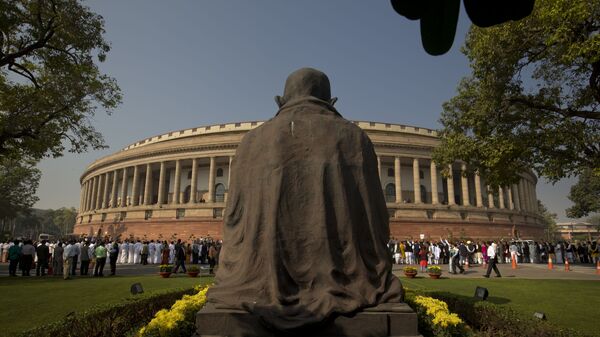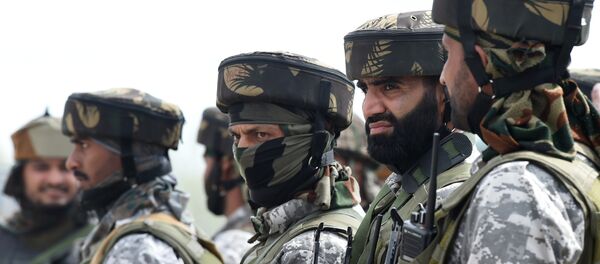The Narendra Modi government should have debated in Parliament the pros and cons of the Basic Exchange and Cooperation Agreement (BECA) before finalizing the crucial military pact on sharing geospatial data, former federal minister and Congress MP Manish Tewari told Sputnik on Thursday.
“The implications of getting close to the US are far-reaching and should have been thoroughly debated in Parliament," opines Tewari, adding that “getting closer” to Washington wasn’t necessarily a “wrong thing” against the backdrop of ongoing military standoff with China.
Tewari, however, adds that the Modi government should have followed the Indian parliamentary tradition on holding a proper discussion in the lead up to sealing the satellite data sharing pact.
"There is a distinction between strategic convergence and quasi-military alliances. The latter has far-reaching implications and should have been debated in Parliament," says the Congress lawmaker.
“With the signing of the foundational agreement, India is inexorably drawn into the US' sphere of influence,” underlines the MP.
He recounts that it was the Congress-led federal government which back in 2005 laid the foundation of a strategic alliance with the US in a reference to the New Framework for the US-India Defence Partnership signed between the then US Defence Secretary Donald Rumsfeld and former Indian Defence Minister Pranab Mukherjee.
The 2005 pact really led to the upgrading of ties between the countries, Tewari believes.
“The BJP brought a no-confidence motion against the Congress-led federal government in 2008 at the time of the India-US Civil Nuclear Agreement,” he says, remarking that the federally governing BJP has had “double standards” on an alliance with the US.
“There was also a debate in Parliament in 2011 over the alliance with the US,” stresses Tewari.
He says that it was only under the leadership of PM Narendra Modi that the country was being kept in the “dark” over issues of national security.
“They have even failed to debate the Chinese transgressions in the Parliament,” notes Tewari, who is also a prominent lawyer.
Tewari says that India’s parliamentary openness to sensitive issues of national security dates back to 1962, when there were a series of parliamentary discussions in the wake of the 1962 war between China and India.
The BECA pact is the fourth foundational military pact signed between the US and India, with the General Security of Military Information Agreement (GSMOIA, 2002), Logistics Exchange Memorandum of Agreement (LEMOA, 2016) and Communications Compatibility and Security Agreement (COMCASA, 2018) being the other three.
The sealing of the agreement at the 2+2 Dialogue in New Delhi followed almost a decade of negotiations between the two democracies.
Under the previous Congress-led government, India had refused to sign the pact over concerns that it would allow the US to potentially “control” India’s military operations.





